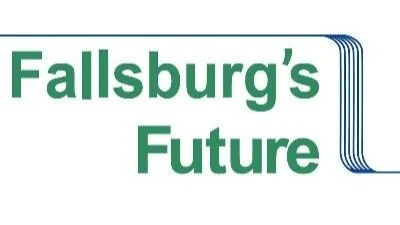Absentee Voters Cost Fallsburg Needed Tax Dollars
Dear Friends
When you sign a voter registration form in New York, you swear, under penalty of perjury, that the address you list is your primary residence. In other words, you are declaring that you live in that town more than anywhere else. Most of us take that statement seriously. Yet in Fallsburg, a growing number of part-time or seasonal homeowners appear to be voting locally while filing taxes, claiming school aid, and accessing services somewhere else. The result: Fallsburg bears the costs of their political choices but gets none of the fiscal benefits.
Why Residency Matters
State and federal funding formulas rarely track where someone casts a ballot; they track where that person lives on paper for taxes, schooling, and public benefits.
Dollars follow data points such as:
the address on your New York State income-tax return;
the district where your children attend school;
the county that bills Medicaid for your doctor visits;
the parcel where you claim a STAR exemption.
If those data points say “New York City” while your voter card says “Fallsburg,” as an absentee voter, you get a free ride, while year-round residents are left to carry the full cost of maintaining our town’s service and infrastructure.
The Hidden Cost to Year-Round Residents
Consider water infrastructure. Fallsburg’s pipes and wells are strained every summer. Road maintenance, emergency services, and solid-waste disposal all scale with population, not with voter turnout. When seasonal voters help decide who sets our tax rate or approves new development, but their own state and county taxes are credited elsewhere, permanent residents foot the bill twice, once in higher property taxes, and again in overstretched services.
Ensuring the System Is Fair
This is not about targeting any religious or cultural group; it is about accountability.
If Fallsburg is good enough to be your hometown at the ballot box, it should be good enough to be your hometown on April 15, and in Albany’s funding spreadsheets.
Here are practical steps officials and citizens can take:
Audit the Voter Roll Against Tax Records. A confidential cross-check of registered voters with STAR exemptions, property-tax classifications, and state income-tax filings would reveal who truly claims Fallsburg as a domicile.
FOIL Key Data. The Freedom of Information Law allows residents to request lists of properties receiving seasonal-use designations, condemned-property notices, or water-shutoff logs. Comparing those lists to voter addresses illuminates potential misalignments.
Review School-Aid and Medicaid Allocation. Local lawmakers should ask state agencies whether Fallsburg’s population surge is reflected in per-pupil funding and Medicaid reimbursement. If not, why not?
Educate the Public. Many part-time residents may not realize the fiscal domino effect of declaring Fallsburg for voting but not for taxes. A polite information campaign, much like the recent push for recycling compliance, could close that knowledge gap without confrontation.
A Call to Action for Our Representatives
Fallsburg’s Town Board, county legislators, and state delegation should champion a simple principle: residency declarations must carry their fair share of revenue. That means pressing Albany to adjust funding formulas when voter rolls and tax rolls don’t match, and supporting legislation that ties STAR and other exemptions to the same primary-residence standard used for voting.
Below is language you can adapt for a letter or public-comment period:
“Fallsburg welcomes every lawful voter.” However if our voter rolls are growing faster than our share of state aid, something is wrong. We urge a transparent review of residency-based funding so that infrastructure, schools, and emergency services are financed in proportion to actual usage. This is about fairness, not politics.”
Democracy is sacred, but so is the social contract that pays for roads, teachers, and paramedics. Fallsburg should not be treated as an ATM: votes withdrawn here, deposits made elsewhere. You can’t have your cake and eat it, too—and Fallsburg taxpayers should no longer be stuck with the crumbs.
There will be an election for Town Board this fall. Several current members will be running for re-election. Fallsburg Future has decided to publish a weekly newsletter highlighting the issues that face the residents and the town. Each newsletter will highlight a particular topic of concern as well as an overview of a particular issue. We have had technical issues with our email service. It has been corrected and you are able to respond to this email.
Fallsburg's Future is a community network of concerned Fallsburg residents established in January 2016. Its Mission is to help guide the urban development of the town of Fallsburg and its five hamlets, to promote its sustainable economic development, protect the fragile beauty of its natural habitats and enhance the opportunities and quality of life for all its residents and visitors. We hope to curb the suburban sprawl that is threatening to overwhelm the town’s physical infrastructure and destroy the natural beauty that the area depends on for its future development. See us on Facebook and our website Fallsburgsfuture.com.

